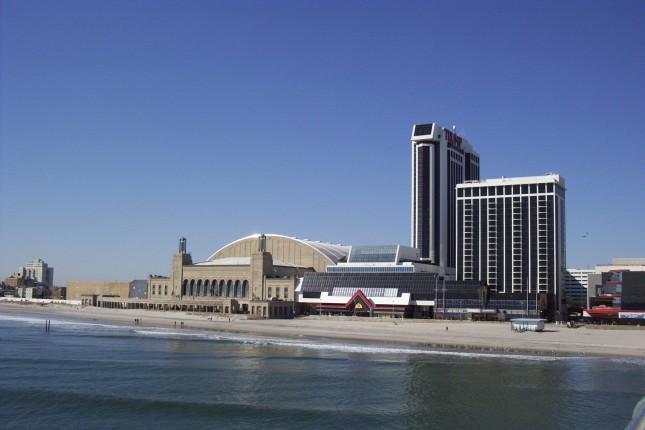
South Jersey Economic Review: ‘Best of Times, Worst of Times’ in Atlantic City
On Feb 18, 2016The newest South Jersey Economic Review (SJER), published today by the William J. Hughes Center for Public Policy at Stockton University, examines the declining labor and housing markets in the Atlantic City region and assesses New Jersey’s economic performance since the Great Recession.
“The leisure and hospitality sector in Atlantic City continues to struggle, although there are some positive trends in other sectors,” said Oliver Cooke, associate professor of Economics at Stockton.
The Atlantic City metropolitan area economy recorded a year-over-year increase of 1,400 jobs excluding the leisure and hospitality sector through last November. Employment increased in restaurants and bars (+300), professional and business services (+100), education (+200) and other services (+200). Casino industry employment declined by 4,100 jobs during the same period. Since 2005, the industry’s employment has declined by 47.6 percent.
Cooke is the founder and editor of the South Jersey Economic Review. He has chronicled the economic changes in the region since near the peak 10 years ago.
“The local economy’s ongoing struggles continue to adversely affect the housing market,” said Cooke.
One in every 261 residential properties in Atlantic County was in some stage (pre-foreclosure, auction or bank-owned) of active foreclosure in December. This compares to 1 in every 553 properties statewide, and 1 in every 1,278 nationally.
Home sales in Atlantic County were down 65 percent year-over-year in November 2015.
Median home price sales data for existing homes from the National Association of Realtors (NAR) also underscore the fragile state of the local residential home market. Third quarter data for 2015 indicate that the median sales price of an existing home in Atlantic City declined 3.4 percent year-over-year to $205,900.
The state economy’s overall performance since the Great Recession’s onset and during the subsequent recovery (since mid-2009) has been relatively poor.
New Jersey experienced the 24th worst job loss among all states during the Great Recession. Since its formal end in June 2009, the state has experienced the seventh weakest recovery.
New Jersey is one of only 13 states that had yet to fully recover all the jobs lost during the Great Recession as of last November. In contrast, all three of New Jersey’s neighbors—Delaware, Pennsylvania, and New York—have more than recovered the jobs they lost during the Great Recession.
Related Articles:





